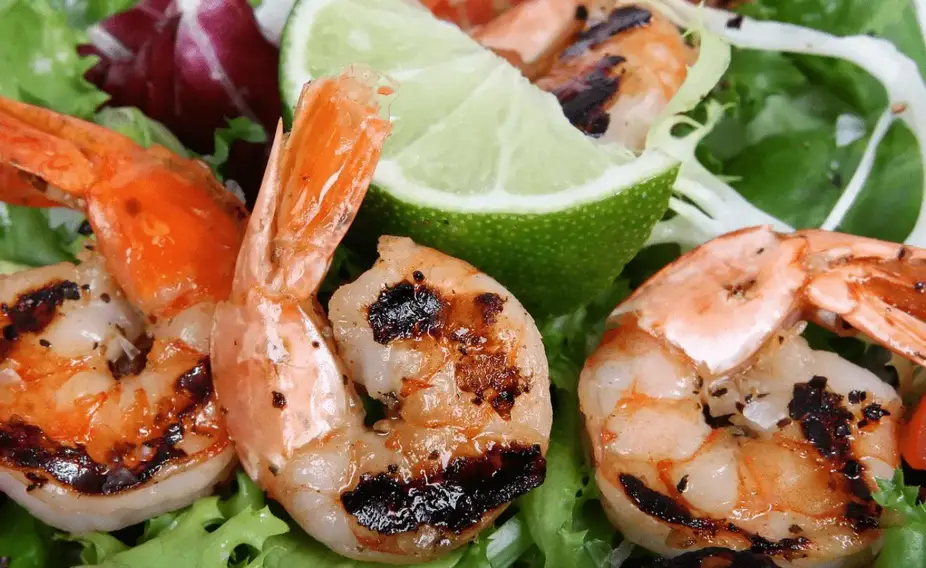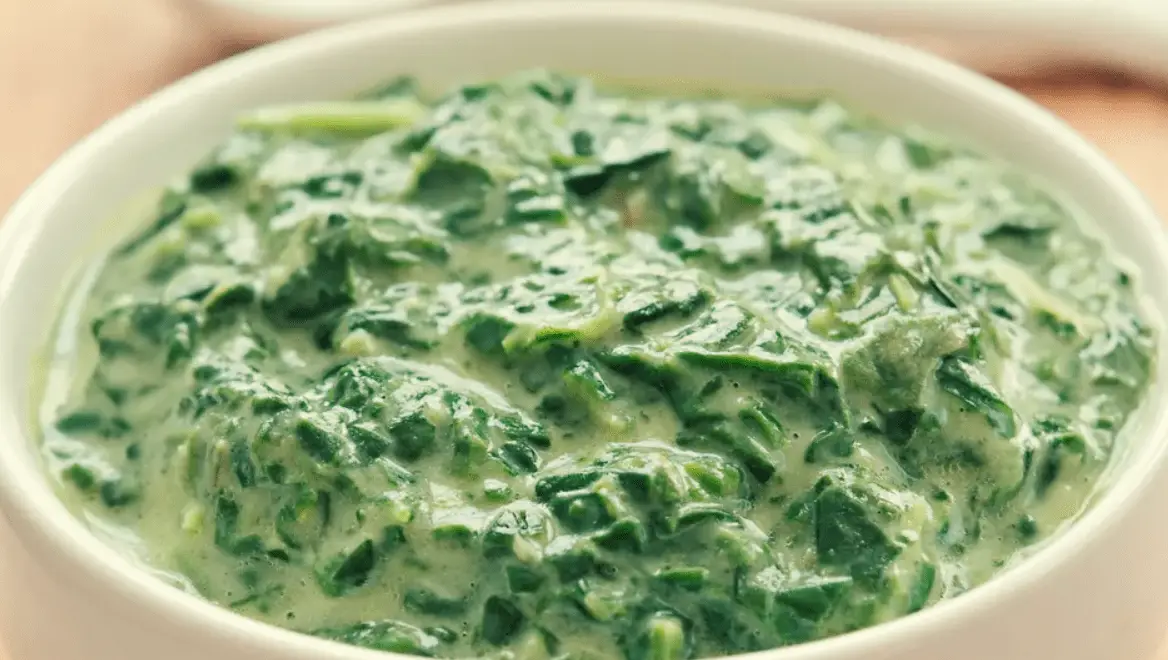
When you eat shrimp that smells like ammonia, you may experience some unwanted side effects. So what happens if you eat shrimp that smells like ammonia?
You should understand why this smell might be present and the potential risks. The ammonia smell in shrimp can be caused by either the presence of bacteria or spoiled meat.
These types of shrimp can lead to food poisoning, digestive problems, and even death. This article will explain what happens if you eat shrimp that smells like ammonia and how you can avoid these risks. Read on to discover more about this issue.
What Happens If You Eat Shrimp That Smells Like Ammonia?
Eating shrimp that smells like ammonia can be a risky experience. The unpleasant odor of ammonia is a warning sign that the seafood may not be safe to eat. In fact, eating shrimp that smells like ammonia may cause nausea, vomiting, diarrhea, and stomach cramps as the seafood is likely contaminated with bacteria that produce toxins.
Sometimes, consuming seafood contaminated with ammonia can lead to serious health complications such as kidney failure or food poisoning. Therefore, it’s essential to be aware of the signs of ammonia contamination and always throw out shrimp that smells like ammonia to avoid potential health risks.
Why Do My Shrimp Smell Like Ammonia?
Shrimp that smells like ammonia has been contaminated with bacteria or spoiled meat. This happens when raw shrimp isn’t prepared and cooked correctly, allowing the bacteria to thrive. These bacteria can produce toxins that cause food poisoning and other health complications if left untreated.
In addition, spoiled shrimp can also produce an ammonia smell, as the bacteria feasting on it emit toxins. Either way, this signifies that the shrimp you are eating is unsafe and should be discarded.
Why Does Seafood Taste Like Ammonia?
Seafood that tastes like ammonia is likely contaminated with bacteria or spoiled meat. Additionally, seafood that is not stored correctly can also give off an ammonia-like taste. Therefore, it is essential to store seafood correctly and cook it thoroughly before consuming it.
If you notice an ammonia-like taste in your seafood, it is best to discard the dish and purchase fresh seafood instead. Always store seafood in the refrigerator or freezer and check to ensure seafood looks and smells fresh before purchasing.
What To Do If Your Shrimp Smells Like Ammonia
If your shrimp smells like ammonia, it is best to discard it immediately. Do not take any chances and throw out shrimp with an unusual smell, color, or texture. It is also essential to ensure all your seafood dishes are cooked properly, as this will help reduce the risk of bacterial contamination.
Finally, always store shrimp in the refrigerator and cook it immediately after purchase to ensure that you eat safe and healthy seafood.
How Do You Store Fresh Shrimp?
Fresh shrimp should be stored in the refrigerator as soon as possible after purchase. It is essential to wrap the shrimp tightly in an airtight container or sealed plastic bag and keep it in the coldest sections of your refrigerator.
You can also freeze the shrimp for extended storage; however, you should cook it before eating. Lastly, always wash your hands properly after handling raw shrimp.
What Does Spoiled Shrimp Smell Like?
Spoiled shrimp has a strong odor that can be described as pungent or ammonia-like. It will also have an off-color and slimy texture.
Additionally, spoiled shrimp may have a sour or fishy smell as well. If you notice any of these signs of spoilage, it is best to discard the shrimp immediately.
Can You Eat Fish That Smells Of Ammonia?
No, you should not eat fish that smells of ammonia. This is a sign that the seafood has been contaminated with bacteria and could be a source of food poisoning.
Furthermore, consuming spoiled fish can cause nausea, vomiting, and stomach cramps. Therefore, it is best to avoid eating fish that smells of ammonia.
If you accidentally consume contaminated seafood, seek medical attention immediately. For more information about the risks of eating spoiled seafood and how to store it properly, consult your healthcare provider or a local seafood expert.
Why Does My Shrimp Taste Chemically?
Shrimp that tastes chemically is likely contaminated with bacteria and ammonia — a sign of food spoilage and should not be consumed.
Besides, shrimp that is not adequately cooked may have a chemical taste as it has not been heated long enough to kill off harmful bacteria or toxins. Therefore, ensuring shrimp is cooked thoroughly is essential.
Always store shrimp in the refrigerator or freezer to prevent food spoilage and ensure your seafood is safe. Additionally, cook all your seafood dishes thoroughly and discard any that looks or smells unusual.
How Do You Get The Chemical Smell Out Of Shrimp?
The chemical smell in shrimp is usually caused by bacteria or spoiled meat. To remove the odor, wash the shrimp with cold running water and use a mild soap to scrub off any remaining bacteria.
You can also soak the shrimp in a mixture of water and white vinegar for 15 minutes to help remove the odors. Lastly, always store your shrimp in the refrigerator or freezer and cook it thoroughly before eating.
Alternatively, you can use a seafood marinade to help reduce the chemical smell of shrimp. Simply marinate the shrimp for 30 minutes in a mixture of olive oil, lemon juice, and herbs before cooking to help reduce the chemical smell and add flavor to your shrimp dishes.
If the shrimp still has a chemical smell after these steps, it is best to discard it and purchase fresh seafood. Following these tips will help ensure that you eat safe and healthy seafood.
Why Does My Shrimp Have A Strong Smell?
Shrimp that has a strong smell is likely contaminated with bacteria, ammonia, or spoiled meat, which is a sign of food spoilage and should not be consumed.
Additionally, shrimp not adequately cooked may have a strong smell as it has not been heated long enough to kill off harmful bacteria or toxins. Therefore, it is essential to ensure shrimp is cooked thoroughly before eating.
Always store shrimp in the refrigerator or freezer to prevent food spoilage and ensure your seafood is safe. Additionally, cook all your seafood dishes thoroughly and discard any that looks or smells unusual. If you suspect that the shrimp is contaminated or spoiled, avoid eating it.
Why Does Crayfish Smell Like Ammonia?
Crayfish that smell like ammonia are likely contaminated with bacteria or spoiled meat. Additionally, crayfish that are not stored properly can also give off an ammonia-like smell. Therefore, it is essential to store crayfish correctly and cook it thoroughly before consuming it.
If you notice an ammonia-like smell in your crayfish, it is best to discard the dish and purchase fresh seafood instead. Always store crayfish in the refrigerator or freezer and check to ensure it looks and smells fresh before purchasing.
How Do You Get Rid Of Ammonia Smell In Fish?
The best way to eliminate an ammonia smell in fish is to ensure it is appropriately stored and cooked thoroughly before consumption.
You can also try marinating the fish with olive oil, lemon juice, and herbs for 30 minutes before cooking. This will help reduce the ammonia smell and add flavor to your fish dishes.
If the fish still has a strong ammonia smell after these steps, it is best to discard it and purchase fresh seafood. Following these tips will help ensure that you eat safe and healthy seafood.
How Can You Tell If Seafood Is Spoiled?
There are a few tell-tale signs that seafood is spoiled. Firstly, the seafood will have a foul odor and an ammonia-like smell. Additionally, the seafood may also have a slimy texture or discoloration.
If you notice any of these signs, it is best to discard the seafood and purchase fresh seafood instead. Always check that your seafood looks and smells fresh before purchasing, and store it in the refrigerator or freezer.
Is Ammonia Poisoning In Fish Fatal?
Yes, ammonia poisoning in fish can be fatal. This is due to harmful bacteria or toxins that have not been killed off by cooking or proper storage. Consuming contaminated fish with these toxins can cause serious health issues, including food poisoning and death.
Therefore, checking that your seafood looks and smells fresh before eating is essential. Additionally, cook all seafood dishes thoroughly and discard any that looks or smells unusual to ensure that your seafood is safe to eat.
Are Shrimps Supposed To Stink?
No, shrimps are not supposed to stink. If you smell an ammonia-like odor from your shrimp, this could be a sign of food spoilage and should not be consumed. Therefore, it is essential to ensure your shrimp is fresh before eating and store it properly in the refrigerator or freezer. Additionally, cook all shrimp dishes thoroughly to kill off any harmful bacteria or toxins that may be present.
In Conclusion
It is essential to ensure your seafood looks and smells fresh before purchasing and storing it properly in the refrigerator or freezer.
Cooking all seafood dishes thoroughly and discarding any that looks or smells unusual is also essential to prevent food spoilage and ensure your seafood is safe to eat.
If you suspect the seafood is contaminated or spoiled, it is best to avoid eating it. Follow these tips to enjoy safe and healthy seafood dishes!


